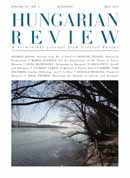Motion Picture as the “Musical Play of the Future” – Lajtha, Höllering, and Eliot
Motion Picture as the “Musical Play of the Future” – Lajtha, Höllering, and Eliot
Author(s): Emőke Tari SolymosiSubject(s): Music
Published by: BL Nonprofit Kft
Summary/Abstract: “Les trois grands Hongrois” – the “Three Great Hungarians”: this is how the French referred to the three preeminent Hungarian composers of the first half of the 20th century, Béla Bartók, Zoltán Kodály and, a decade their junior, László Lajtha (1892–1963). Like his elders, Lajtha was not just a composer but a notable music ethnographer and distinguished teacher. On the recommendation of Bartók, Lajtha oriented his career with a view to French culture, and studied in Paris under Vincent d’Indy, who headed Schola Cantorum. Later on, most of his works were published by Éditions Alphonse Leduc, and many of his compositions were performed in Paris and other cities in France. Lajtha made friends with leading French intellectuals such as Romain Rolland, to whom he dedicated his String Trio No. 2, and who wrote about the young master’s talent in superlatives. Lajtha frequently returned to the French capital in the capacity of cultural diplomat, and in 1955 he became the first Hungarian composer ever to be elected member of the Institut de France’s Académie des Beaux-Arts. (It is another matter that he was unable to deliver his inaugural address until seven years later. Between 1948 and 1962, the Communist regime denied him a passport. During this period of 14 years, Lajtha was permitted but a single brief trip to the West.) Silenced for political reasons for so long, Lajtha has in recent decades been rediscovered, by music professionals and the public alike, as a composer of a distinctive musical voice and vision. In 2012, we celebrate his 120th birthday, and 2013 will mark the 50th anniversary of his death. It is on the occasion of this double anniversary that Hungarian Review publishes the present study on Lajtha’s film music – just a small part of his rich oeuvre, which contains nine symphonies, ten string quartets, three ballet scores, and one opera, as well as sacred music.
Journal: Hungarian Review
- Issue Year: III/2012
- Issue No: 03
- Page Range: 81-93
- Page Count: 13
- Language: English

